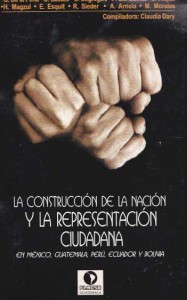In The Oxford Handbook of Law and Anthropology, edited by Marie-Claire Foblets, Mark Goodale, María Sapignoli, and Olaf Zenker
 This chapter reviews the principal debates on the juridification of politics, discussing anthropological analysis of the juridification of Indigenous politics. While much of the broader debate refers principally to the diffusion and vernacularization of state and international law, and the subjectivities generated by engagements with dominant norms and institutions, here I turn the lens on the complex dialectics involved in Indigenous Peoples’ juridification of their own forms of law or what in Spanish is referred to as derecho propio. Drawing on my ethnographic work in Guatemala, I trace the different ways in which Mayan rights activists and their allies have analyzed, systematized, and defended their own forms of law in the context of battles for state recognition of legal pluralism in the post-war period. I point to the potentialities inherent in the juridification of Mayan law, arguing that different legal engagements can be read as exchanges that also contain and transmit a politics of what Audra Simpson (2015) has termed ‘indigenous refusal’.
This chapter reviews the principal debates on the juridification of politics, discussing anthropological analysis of the juridification of Indigenous politics. While much of the broader debate refers principally to the diffusion and vernacularization of state and international law, and the subjectivities generated by engagements with dominant norms and institutions, here I turn the lens on the complex dialectics involved in Indigenous Peoples’ juridification of their own forms of law or what in Spanish is referred to as derecho propio. Drawing on my ethnographic work in Guatemala, I trace the different ways in which Mayan rights activists and their allies have analyzed, systematized, and defended their own forms of law in the context of battles for state recognition of legal pluralism in the post-war period. I point to the potentialities inherent in the juridification of Mayan law, arguing that different legal engagements can be read as exchanges that also contain and transmit a politics of what Audra Simpson (2015) has termed ‘indigenous refusal’.





 This introductory essay frames a series of ethnographic studies from a three year research project involving eleven women researchers and different processes of indigenous women’s organizing in Mexico, Guatemala, Ecuador, Bolivia and Colombia that aim to secure greater gender justice within communities, organizations and societies. Taken together, the studies examine how indigenous women collectively engage with different forms of legality, and with ideas about (in)justice and (in)security. In particular, the authors explore the ways in which the intersectionality of violence against indigenous women is expressed, reinforced and resisted through resort to legal mechanisms and discourses, deploying different framings which, as we argue below, are both situated and relational. The introductory essay presents the different cases and discusses some of the key theoretical, conceptual and methodological issues for analyzing indigenous women’s mobilization for justice and security in contexts of legal pluralism in Latin America.
This introductory essay frames a series of ethnographic studies from a three year research project involving eleven women researchers and different processes of indigenous women’s organizing in Mexico, Guatemala, Ecuador, Bolivia and Colombia that aim to secure greater gender justice within communities, organizations and societies. Taken together, the studies examine how indigenous women collectively engage with different forms of legality, and with ideas about (in)justice and (in)security. In particular, the authors explore the ways in which the intersectionality of violence against indigenous women is expressed, reinforced and resisted through resort to legal mechanisms and discourses, deploying different framings which, as we argue below, are both situated and relational. The introductory essay presents the different cases and discusses some of the key theoretical, conceptual and methodological issues for analyzing indigenous women’s mobilization for justice and security in contexts of legal pluralism in Latin America.



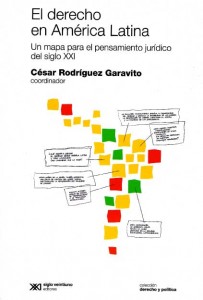
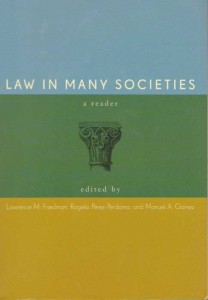
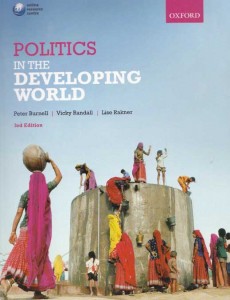 A contribution to a textbook on politics and development, this chapter examines Guatemala as a persistent case of underdevelopment, defining development in terms of social, economic, cultural, and political rights. It analyses historical patterns of state formation and economic development before examining the attempts to reverse historical trends and “engineer development” represented by the 1996 peace agreement. The final section signals the main contemporary causes of the country’s persistent underdevelopment: a patrimonialist and predatory state linked in turn to the strength and conservatism of the private sector, the weakness of the party system, the continuing influence of the armed forces, and extremely high levels of crime and impunity.
A contribution to a textbook on politics and development, this chapter examines Guatemala as a persistent case of underdevelopment, defining development in terms of social, economic, cultural, and political rights. It analyses historical patterns of state formation and economic development before examining the attempts to reverse historical trends and “engineer development” represented by the 1996 peace agreement. The final section signals the main contemporary causes of the country’s persistent underdevelopment: a patrimonialist and predatory state linked in turn to the strength and conservatism of the private sector, the weakness of the party system, the continuing influence of the armed forces, and extremely high levels of crime and impunity.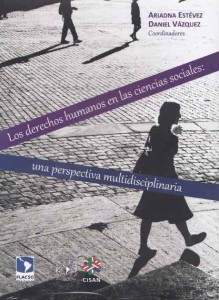
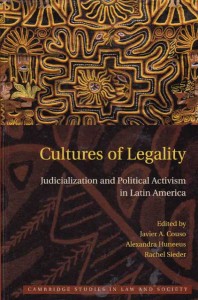
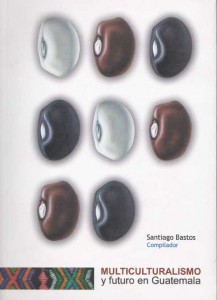
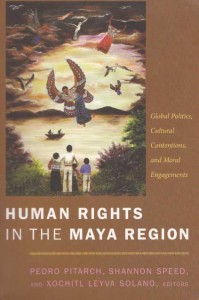
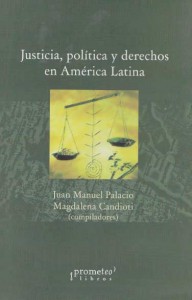

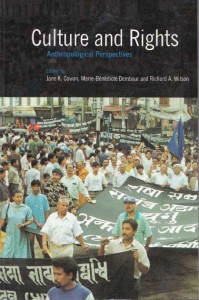 In this chapter we argue that recourse to legalistic strategies and discourses to strategically further the aims of indigenous movements shapes the ways their aspirations are represented. Indigenous identities in Guatemala are effectively being narrated or codified through dominant legal discourses, specifically international human rights law and multiculturalism. This has resulted in the projection of an essentialized, idealized and atemporal indigenous identity, the movement’s leaders often perceiving such essentializing as tactically necessary in order to secure collective rights for indigenous people. Such claims of authenticity have become intrinsic to demands for indigenous legal structures and practices to be given greater political space as part of the wider process of state reform. However, such conceptions ultimately fail to reflect the complexity and power dynamics of social relations in the wake of the armed conflict.
In this chapter we argue that recourse to legalistic strategies and discourses to strategically further the aims of indigenous movements shapes the ways their aspirations are represented. Indigenous identities in Guatemala are effectively being narrated or codified through dominant legal discourses, specifically international human rights law and multiculturalism. This has resulted in the projection of an essentialized, idealized and atemporal indigenous identity, the movement’s leaders often perceiving such essentializing as tactically necessary in order to secure collective rights for indigenous people. Such claims of authenticity have become intrinsic to demands for indigenous legal structures and practices to be given greater political space as part of the wider process of state reform. However, such conceptions ultimately fail to reflect the complexity and power dynamics of social relations in the wake of the armed conflict.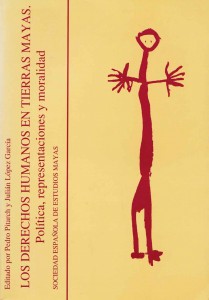
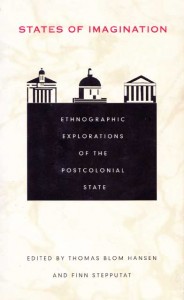
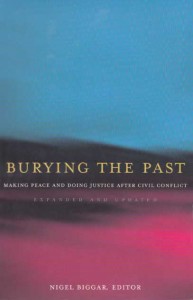 Focusing on the case of Guatemala, this chapter examines a number of variables central to explaining the nature and impact of memory politics: first, the social legacies of widespread human rights violations, including who the victims and perpetrators were, and the kind of impact human rights violations had on society as a whole; second, the circumstances of the transition itself, specifically the prevailing balance of political forces and the different trade-offs between truth and justice that this engendered; third, the role of local human rights organizations and civil society in general, in particular whether and how they supported and/or contested official attempts to deal with the legacy of past violations of human rights; and fourth, the role played by international governmental and nongovernmental organizations in efforts to uncover the truth about the past and address the consequences of human rights violations. In the light of this analysis, the final section of the chapter considers the impact of memory politics on the wider process of democratization in Guatemala.
Focusing on the case of Guatemala, this chapter examines a number of variables central to explaining the nature and impact of memory politics: first, the social legacies of widespread human rights violations, including who the victims and perpetrators were, and the kind of impact human rights violations had on society as a whole; second, the circumstances of the transition itself, specifically the prevailing balance of political forces and the different trade-offs between truth and justice that this engendered; third, the role of local human rights organizations and civil society in general, in particular whether and how they supported and/or contested official attempts to deal with the legacy of past violations of human rights; and fourth, the role played by international governmental and nongovernmental organizations in efforts to uncover the truth about the past and address the consequences of human rights violations. In the light of this analysis, the final section of the chapter considers the impact of memory politics on the wider process of democratization in Guatemala.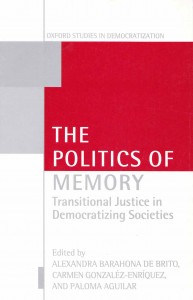 This chapter compares and contrasts experiences of “memory politics” in El Salvador, Honduras and Guatemala, the three Central American countries which during the 1990s undertook official processes of investigating past abuses of human rights, and examines the examines the role exercises in memory have played in the struggle for democratization. In marked contrast to the Southern Cone of Latin America, the transition to procedural democracy in these three Central American countries roughly coincided with the worst period of human rights abuse, the consolidation of military power over the state and civil society, and the demobilization of opposition movements. It is therefore argued here that effective democratic consolidation hinges less on the constitution of formal procedural channels for participation and representation, and more crucially on the effective and far-reaching demilitarization of state and society. This involves securing both formal changes to state institutions and the creation of a democratic political culture of citizenship. Exercises in memory have constituted a critical variable in these distended and complex processes.
This chapter compares and contrasts experiences of “memory politics” in El Salvador, Honduras and Guatemala, the three Central American countries which during the 1990s undertook official processes of investigating past abuses of human rights, and examines the examines the role exercises in memory have played in the struggle for democratization. In marked contrast to the Southern Cone of Latin America, the transition to procedural democracy in these three Central American countries roughly coincided with the worst period of human rights abuse, the consolidation of military power over the state and civil society, and the demobilization of opposition movements. It is therefore argued here that effective democratic consolidation hinges less on the constitution of formal procedural channels for participation and representation, and more crucially on the effective and far-reaching demilitarization of state and society. This involves securing both formal changes to state institutions and the creation of a democratic political culture of citizenship. Exercises in memory have constituted a critical variable in these distended and complex processes.